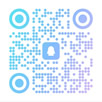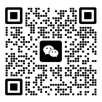正文:5.2行为监控阶段
主要从动机的监控和行为的监控两方面进行干预。行为的监控发生在学习者的学习过程中。
| 自我调控的范围 |
自我调控干预 |
| 动机 |
指令1:学习过程中哪些因素影响了你的学习效率?(学习时间不够?学习内容越来越难?没有成就感?感到压力太大?) |
| 行为 |
指令1:是否调整了学习时间(增加阅读时间?选择阅读效率高的时候进行阅读?)
指令2:遇到学习困难时是否有倍努力?怎么让自己继续进行阅读学习?(同伴,老师的督促?)
指令3:是否寻求帮助?为何不想求帮助?怎么解决?(对自己的学习结果无把握,可以求助于老师给出客观的评价或得到积极的鼓励) |
学习者通过对自己阅读活动的反思可以及时调整自己的阅读活动或寻求教师帮助,如当学生觉得没有成就感,感到压力大时,教师就应作出相应的积极的评估和帮助学习者减压等,使干预计划得以继续展开。
5.3行为控制阶段
主要从认知,动机和行为的控制,进行自我调控。
| 自我调控的范围 |
自我调控干预 |
| 认知 |
指令:继续利用有效的学习策略,替换无效的学习策略。(列提纲,总结等) |
| 动机 |
指令:自我表扬,减少焦虑。(在阅读活动顺利完成之后奖励自己一个冰激凌;了解关于阅读材料的考查方式) |
| 行为 |
指令: 继续坚持,努力学习 |
5.4行为反思阶段 (略)
三.干预计划的反思1. 困难及建议干预计划的实施是一个长期耗时、见效慢的过程,而且在短期之内有可能会影响其他课程的学习(占用了自修课和双休日的时间)。这个计划的实施需要得到学生和其他任课老师以及家长的支持和鼓励。因此在计划实施之前也应向其他任课老师以及教师告知干预计划的预期达到的目标及其实用价值。在干预计划实施前应该制定相关的评估标准作为计划实施的参照。
2. 干预计划的目标及实用价值 通过对阅读学习的指导,全面展开干预,希望能通过干预提高学习者的自我调控能力,随着自我调控能力的提高阅读能力也能随之提高。莫和张(1997)认为“从广泛的角度分析……对自己学习活动进行自我调控却是各种学习活动所具备的共同特征,也是决定各种学习活动效率的主要因素。由于学生对学习活动进行监控的实质是相同的,因此在任一学习活动总的学习自我调控具有广泛的迁移性,可以应用于不同的学习情况中……”。
参考书目
Bandura, A. (1986). Social foundations of thought and action: A social cognitive theory. Englewood Cliffs,NJ:Prentice Hall.
Boekaerts, M., Pintrich, P. R., & Zeidner, M. (Eds.) (2000).
Handbook of self-regulation San Diego, CA: Academic.
Brown, A. (1997). Transforming schools into communities of thinking and learning about serious matters.
American Psychologist, 52(4), 399-413.
Brown , A. L. (1975). The development of memory: Knowing, knowing about knowing, and knowing how to know. In H. W. Reese (Ed.),
Advances in child development and behavior (Vol. 10, pp. 103-152). Academic Press.
Brown , A. L. (1978). Knowing when, where, and how to remember: A problem of metacognition. In R. . Glaser (Ed.),
Advances in instructional psychology (Vol. 1, pp. 77-165). Hillsdale, NJ: Erlbaum.
Brown, A. (1997). Transforming schools into communities of thinking and learning about serious matters.
American Psychologist,
52(4), 399-413.
Dweck, C. S., Yu, S. L., & Pintrich, P. R. (1975). The role of expectations and attributions in the alleviation of learned helplessness.
Journal of Personality and Social Psychology,
31, 674-685.
Elliott, E. S., & Dweck, C. S. (1988). Goals: An approach to motivation and achievement.
Journal of Personality and Social Psychology,
54, 5-12.
Guthrie, J. T., Cox, K. E. (2001). Classroom Conditions for Motivation and Engagement in Reading.
Educational Psychology Review,
13(3), 283-302.
Hofer, B., Yu, S., & Pintrich, P. R. (1998). Teaching college students to be self-regulated learners. In D. H. Schunk & B. J. Zimmerman (Eds.),
Self-regulated learning: From teaching to self-reflective practice (pp. 57-85). , New York: Guilford. (Reprinted from )
Meece , J. L., Blumenfeld, P. C., & Hoyle, R. H. (1988). Students' goal orientations and cognitive engagement in classroom activities.
Journal of Educational Psychology,
80, 514-523.
Pintrich, P. R., Roeser, R. ., & De Groot, E. . (1994). Classroom and individual differences in early adolescents' motivation and self-regulated learning.
Journal of Early Adolescence,
14, 139-161.
Pintrich, P. R. (2000). The role of goal orientation in self-regulated learning. In M. . Boekaerts & P. R. Pintrich (Eds.),
Handbook of self-regulation (pp. 451-502). San Diego, CA: Academic.
Pintrich, P.R. (2002). The role of metacognitive knowledge in learning, teaching, and assessing.
Theory Into Practice, 41(4), 219-225.
Pintrich, P. R., Zusho, A. (2002). The development of academic self-regulation: The role of cognitive and motivational factors. In A. . Wigfield & J. S. Eccles (Eds.),
Development of achievement motivation (pp. 249-284). San Diego, CA: Academic.
Ryan, A. M., Gheen, M. H., & Midgley, C. (1998). Why do some students avoid asking for help? An examination of the interplay among students’ academic efficacy, teachers’ social-emotional role, and the classroom goal structure.
Journal of Educational Psychology,
90, 528-535.
Rosenholtz, S. J., Simpson, C. ., & , . . (1984). The formation of ability conceptions: Developmental trend or social construction?
Rev. Educ. Res,
64, 479-530.
Schunk, D. H. (2005). Self-regulated learning: The eductucational legacy of Paul R. Pintrich.
Educational Psychologist,
40(2), 85-94.
Schunk, D. H., & Zimmerman, B. J. (Eds.). (1998).
Self-regulated learning: From teaching to self-reflective practice. Guilford.
Wolters, C. A., Yu, S. L., & Pintrich, P. R. (1996). The relation between goal orientation and students' motivational beliefs and self-regulated learning.
Learning and Individual Differences,
8, 211-238.
Zimmerman, B. J. (1989). A social cognitive view of self-regulated academic learning.
Journal of educational psychology, 81(3), 329-339.
Zimmerman, B.J. (2001).
Theories of self-regulated learning and academic achievement: An overview and analysis. In B.J. Zimmerman & D.H. Schunk (Eds.), Self-regulated learning and academic achievement: Theoretical perspectives (2nd ed., pp. 1-37). Mahwah, NJ: Erlbaum.
3/4 首页 上一页 1 2 3 4 下一页 尾页
 《哈尔滨工程大学学报》
《哈尔滨工程大学学报》 《实用中医药》
《实用中医药》 编辑QQ
编辑QQ  编辑联络
编辑联络 

